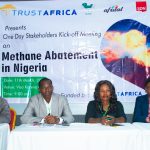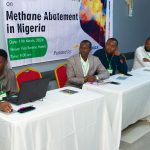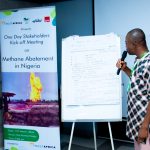In the global fight against climate change, methane emissions have emerged as a critical yet often overlooked contributor to environmental degradation. While carbon dioxide (CO2) often takes center stage in discussions about greenhouse gases, methane (CH4) poses its own set of challenges, particularly in countries like Nigeria where its sources are multifaceted and deeply intertwined with everyday activities.
Methane, commonly known as natural gas, is produced through both natural processes and human activities. In Nigeria, a significant portion of methane emissions arises from anthropogenic sources such as agriculture, waste management, and oil and gas production. From rice cultivation to livestock farming, methane is released into the atmosphere during various stages of these processes, contributing to Nigeria’s overall greenhouse gas footprint.
The consequences of unchecked methane emissions are far-reaching and multifaceted. Not only does methane trap heat in the atmosphere more effectively than CO2, but it also contributes to air pollution and poses direct health hazards to humans. In Nigeria, where rapid industrialization and urbanization are driving increased methane emissions, the need for action is urgent.
One of the primary challenges in addressing methane emissions in Nigeria lies in the country’s reliance on gas as a transitional fuel for economic growth. While Nigeria boasts abundant natural gas reserves, the extraction and utilization of this resource often result in unintended methane leaks and emissions. Additionally, inefficient waste management practices exacerbate methane emissions from landfills and sewage systems, further compounding the problem.
However, amid these challenges lies an opportunity for transformative change. Initiatives such as the Methane Abatement in Nigeria project, spearheaded by organizations like the African Initiative for Transparency, Accountability, and Responsible Leadership (AfriTAL) and the Environmental Centre for Oil Spills and Gas Flaring (ECOSGF), are paving the way for sustainable solutions to methane emissions.
The Methane Abatement in Nigeria project adopts a multi-pronged approach to address methane emissions, focusing on advocacy, awareness-raising, and policy intervention. By engaging stakeholders across various sectors, including government agencies, civil society organizations, and the private sector, the project aims to catalyze action towards methane reduction and mitigation.
Key strategies employed by the project include raising awareness about the environmental and health impacts of methane emissions, advocating for policy reforms to regulate methane-intensive activities, and promoting innovative technologies for methane capture and utilization. By harnessing the collective efforts of diverse stakeholders, the project seeks to create a conducive environment for sustainable methane abatement in Nigeria.
Crucially, the success of methane abatement efforts in Nigeria hinges on widespread public engagement and participation. As citizens, we all have a role to play in reducing our carbon footprint and advocating for sustainable practices in our communities. Whether it’s adopting eco-friendly waste management practices, supporting renewable energy initiatives, or advocating for policy reforms, every action counts in the fight against methane emissions.
Moreover, methane abatement presents tangible co-benefits beyond environmental sustainability. By reducing methane emissions, we can improve air quality, protect public health, and create new economic opportunities in sectors such as renewable energy and waste management. In Nigeria, where the impacts of climate change are already being felt, investing in methane abatement is not just an environmental imperative but also a pathway to a more resilient and prosperous future.
In conclusion, addressing methane emissions is a crucial step towards achieving sustainable development in Nigeria and mitigating the impacts of climate change. Through collaborative efforts and innovative solutions, we can pave the way for a cleaner, healthier, and more sustainable future for generations to come. Together, let’s work towards a Nigeria where methane abatement is not just a goal but a reality.
Click here to download the communique
















































































